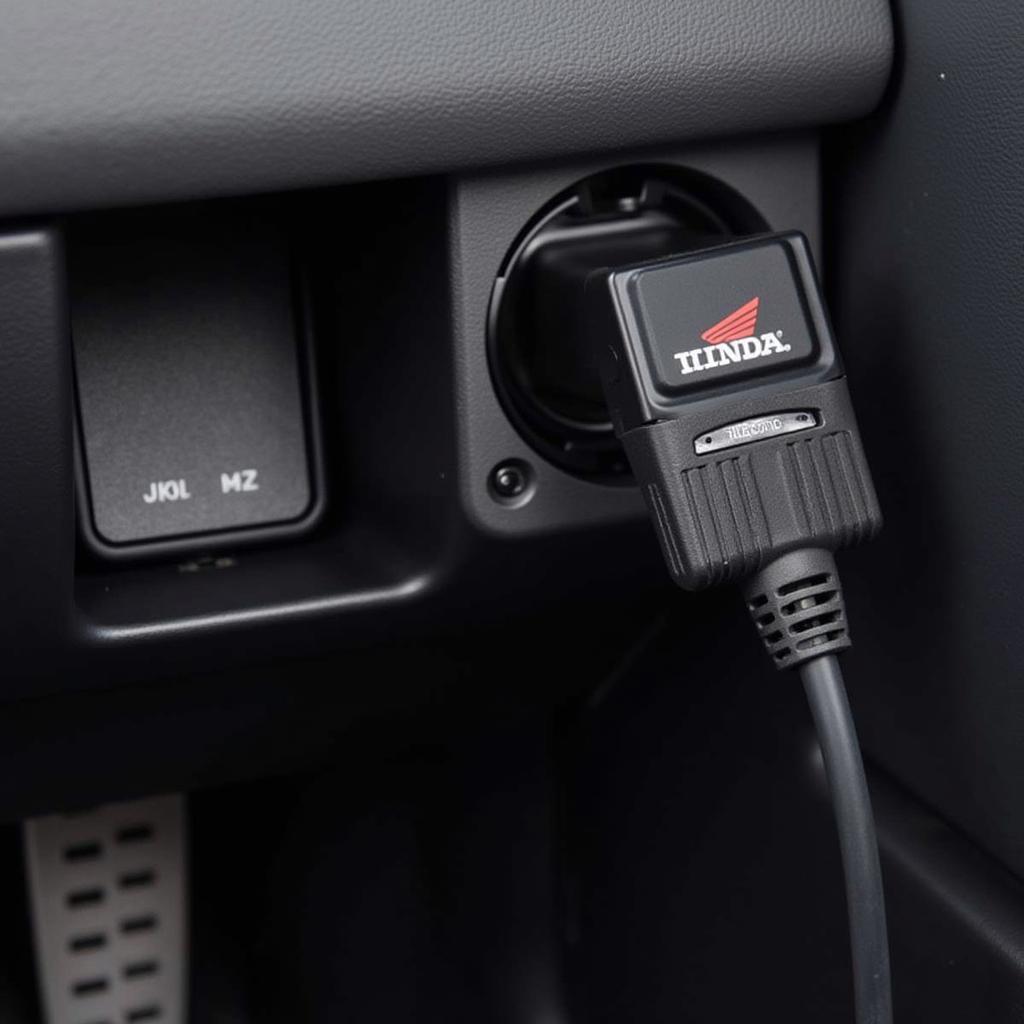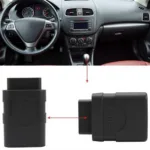Owning a Honda CRV means experiencing the perfect blend of reliability, performance, and style. However, like any vehicle, even your dependable CRV can encounter technical hiccups. When those issues arise, a car diagnostic is your first line of defense.
Understanding how car diagnostics work specifically for your Honda CRV can save you time, money, and unnecessary stress in the long run. This comprehensive guide dives deep into the world of car diagnostics, focusing on how they apply to your Honda CRV and empowering you to make informed decisions about your vehicle’s health.
What Exactly is a Car Diagnostic for Honda CRV?
A car diagnostic, in its simplest form, is like a health checkup for your Honda CRV. It involves retrieving data from your vehicle’s onboard computer, the Engine Control Unit (ECU), to identify any potential issues. This data is then interpreted to pinpoint the root cause of a problem, often indicated by those pesky dashboard warning lights.
Think of your CRV’s ECU as its brain. It constantly monitors various systems, from engine performance and emissions to airbag functionality and braking. When something seems off, the ECU logs a Diagnostic Trouble Code (DTC). A car diagnostic tool then reads these DTCs, translating them into understandable information for mechanics and car owners.
Why is Car Diagnostic Crucial for Your Honda CRV?
Gone are the days of relying solely on a mechanic’s intuition to diagnose car problems. Today, car diagnostics offer a plethora of benefits for Honda CRV owners:
- Early Detection: Identifying problems early can prevent minor issues from snowballing into major (and expensive) repairs down the road.
- Accurate Diagnosis: Car diagnostics provide precise information about the problem, minimizing guesswork and unnecessary part replacements.
- Cost Savings: By pinpointing the exact issue, you avoid paying for unnecessary repairs and labor costs.
- Improved Performance: Resolving underlying issues can improve your CRV’s fuel efficiency, performance, and overall driving experience.
- Increased Resale Value: A well-maintained CRV with a documented diagnostic history is more attractive to potential buyers.
Common Issues Diagnosed in a Honda CRV
While Honda CRVs are renowned for their reliability, some issues are more prevalent than others. Here are a few examples of common problems that a car diagnostic can easily identify in your Honda CRV:
- Oxygen Sensor Malfunction: A faulty oxygen sensor can disrupt your engine’s air-fuel mixture, leading to decreased fuel efficiency and increased emissions.
- Catalytic Converter Problems: Issues with the catalytic converter can trigger warning lights and affect your CRV’s emissions control system.
- Transmission Issues: Slipping gears, rough shifting, or a complete transmission failure are serious issues best diagnosed early on.
- Engine Misfires: Misfires not only affect performance but can also damage your engine if left unaddressed.
- Electrical System Faults: Problems with the battery, alternator, or wiring can lead to various electrical gremlins and starting issues.
Choosing the Right Car Diagnostic for Your Honda CRV
The market offers a wide array of car diagnostic tools, each with its own set of features and price points. Here’s a quick breakdown:
-
Basic Code Readers: These affordable, pocket-sized devices can read and clear basic DTCs, perfect for DIY enthusiasts.
-
Advanced Scan Tools: Used by professional mechanics, these tools offer comprehensive diagnostics, live data streaming, and advanced functionalities.
-
Smartphone Apps: Several apps connect to your smartphone via Bluetooth, providing basic to intermediate diagnostic capabilities.
When choosing a car diagnostic tool, consider your budget, technical expertise, and the level of detail you require.
Conclusion
A car diagnostic is an indispensable tool for any Honda CRV owner. It empowers you with the knowledge to understand your vehicle’s health, make informed repair decisions, and ensure a smooth, enjoyable driving experience. By embracing the power of car diagnostics, you can keep your Honda CRV running smoothly for years to come.
FAQs
1. How often should I get a car diagnostic for my Honda CRV?
It’s generally recommended to get a car diagnostic at least once a year, or whenever your CRV’s check engine light illuminates.
2. Can I perform a car diagnostic myself?
Yes, basic car diagnostics can be performed at home using affordable code readers or smartphone apps. However, complex issues may require professional assistance.
3. What should I do after getting a car diagnostic?
If the diagnostic reveals any issues, consult a qualified mechanic specializing in Honda vehicles to discuss repair options and costs.
4. Does a car diagnostic drain my CRV’s battery?
No, car diagnostics use minimal power and should not drain your battery.
5. Can a car diagnostic fix problems?
No, a car diagnostic only identifies problems. It’s crucial to address the underlying issues through proper repairs or maintenance.
6. What if my Honda CRV doesn’t have an OBD-II port?
Older Honda CRV models may have different diagnostic ports. Consult your owner’s manual or a qualified mechanic for assistance.
7. Where can I learn more about car diagnostics for my Honda CRV?
For further information and expert advice, contact DiagFixPro. We offer a wealth of resources and support for all your car diagnostic needs.
Need Help?
Contact our team of experts via WhatsApp: +1(641)206-8880, Email: [email protected]. We are available 24/7 to assist you.


